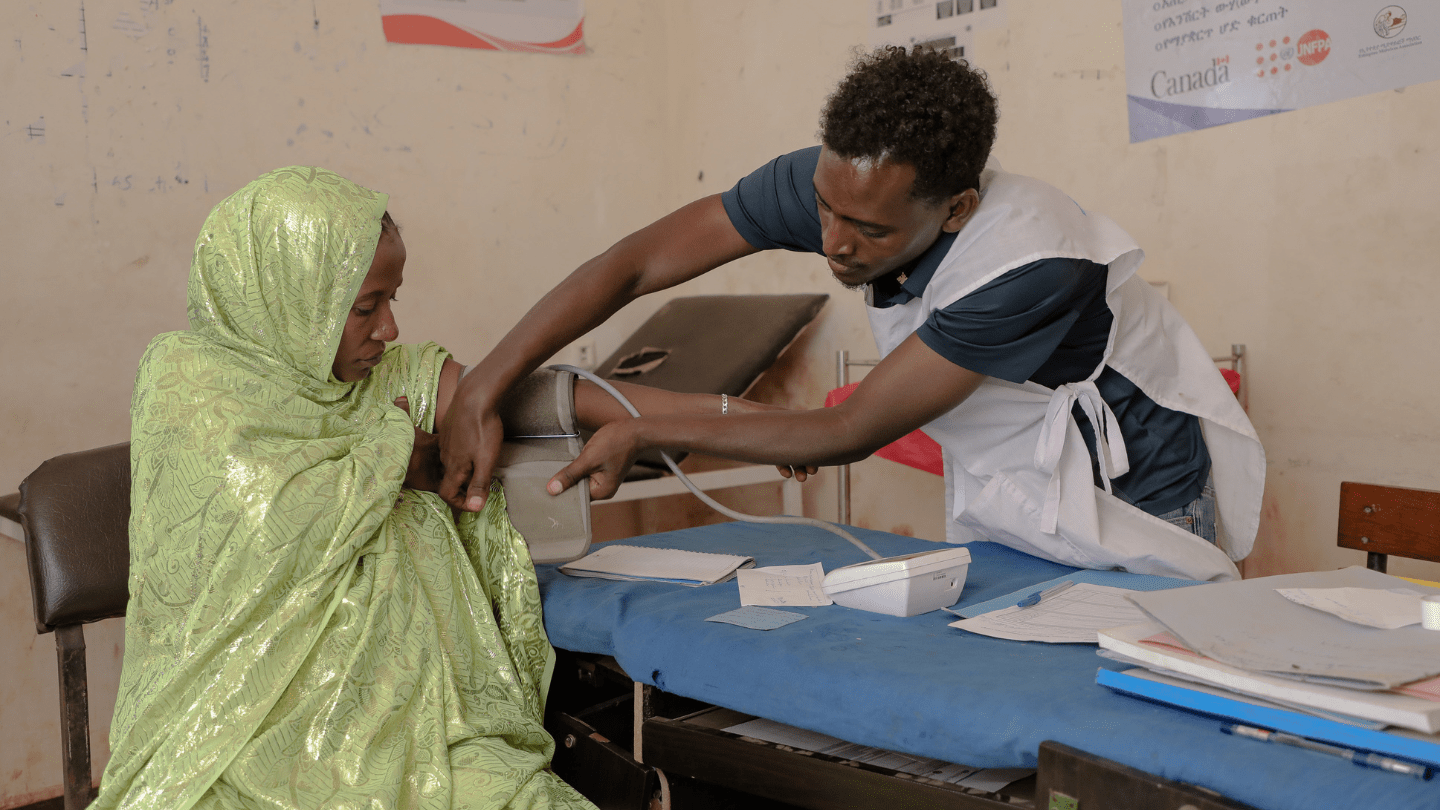In the early hours of Sherkole, a remote town 100 kilometers from Assosa, the capital of Ethiopia’s Benishangul Gumuz Region, Midwife Gizachew Eyayu begins his day. Awaiting him are expectant mothers who have traveled long distances for antenatal checkups and delivery care.
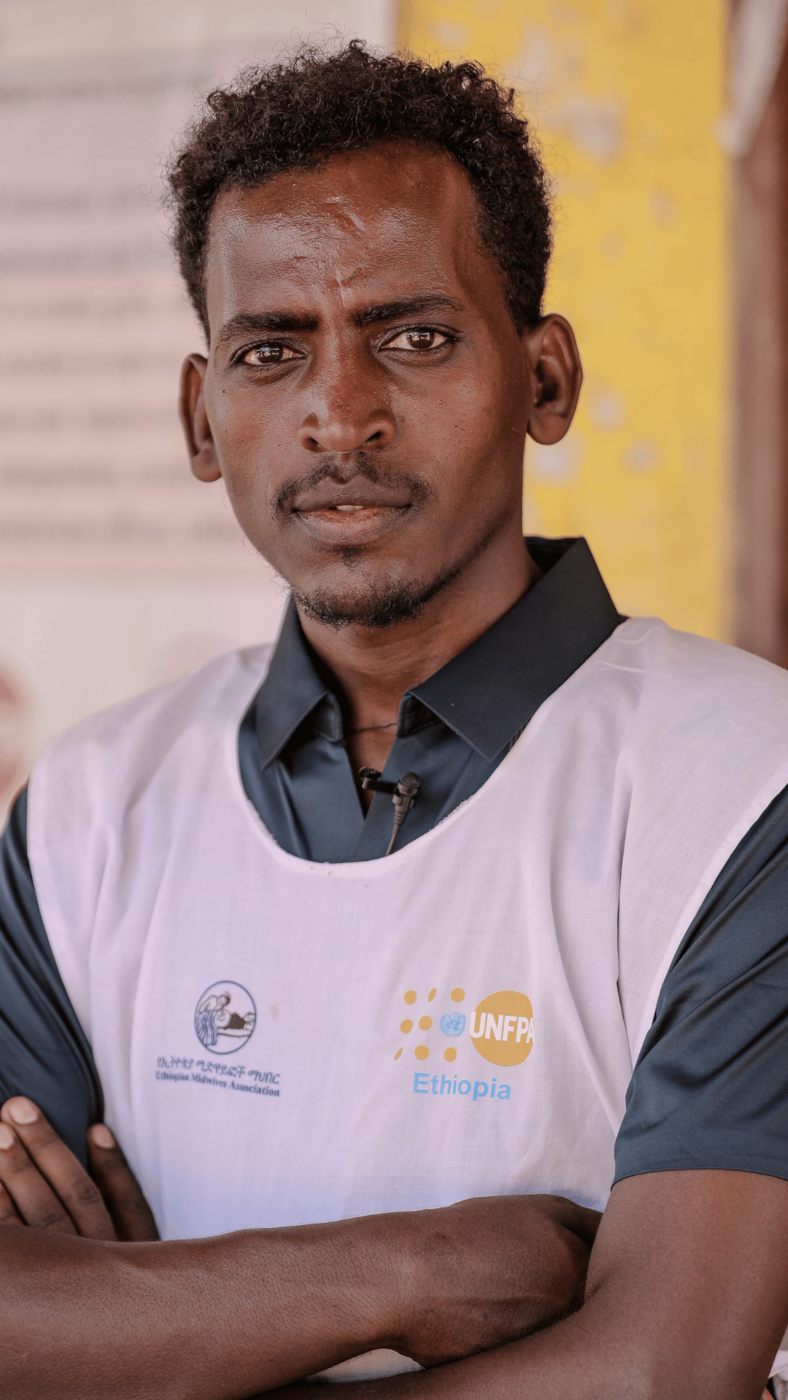
For the past two years, Gizachew has been serving at Sherkole Health Center, providing life-saving maternal and newborn services to a catchment population of 30,000. Deployed by the Ethiopian Midwives Association (EMwA) with support from UNFPA and funding from Global Affairs Canada, he has become a trusted and respected figure in one of the country’s most underserved areas.
Despite societal norms that often label midwifery as "women’s work," Gizachew chose this path with purpose.
“Maternal health is not just a woman’s issue, it’s a human issue,” he says.
Women in Sherkole face many barriers, from poor roads and limited health infrastructure to deeply rooted cultural norms. Many have traditionally given birth at home, often without skilled support. But thanks to the tireless efforts of Gizachew and his colleagues, that is starting to change.
Every day, he provides essential care—antenatal and postnatal checkups, skilled delivery services, and guidance on nutrition, birth preparedness, and warning signs during pregnancy. His compassionate approach and clinical skill have made a significant impact.
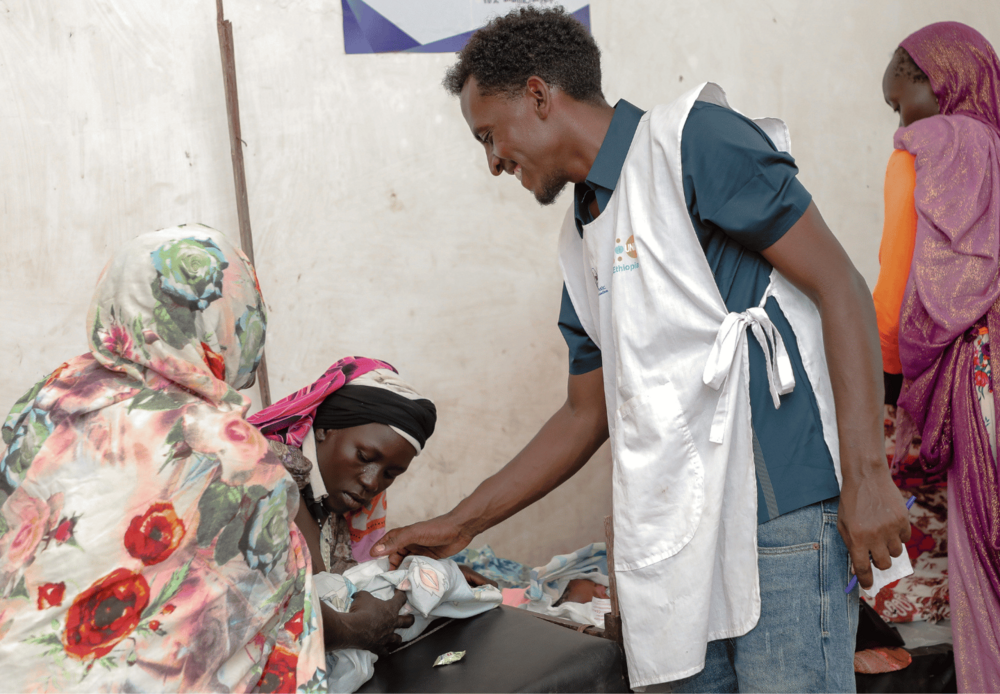
With UNFPA’s support, Sherkole Health Center has received vital upgrades—operating lights, suction machines, and delivery beds. The presence of a maternity waiting home has also been a game changer, allowing women with high-risk pregnancies to stay close to care as they approach labor.
Since Gizachew’s arrival, institutional deliveries at the health center have increased by 63%. Today, an average of 55 babies are safely delivered at the facility each month.
Meeting Challenges with Compassion
Despite these gains, the work remains demanding. The center still lacks critical tools, like an ultrasound machine. Harmful practices persist, and misconceptions, especially around family planning, remain common. But Gizachew faces these challenges with empathy and determination.
Through community outreach and close collaboration with health extension workers, he educates and builds trust.
“Some made it, but far too many didn’t,” he reflects. “Now, more mothers are choosing to come to the health center. We’re saving lives.”
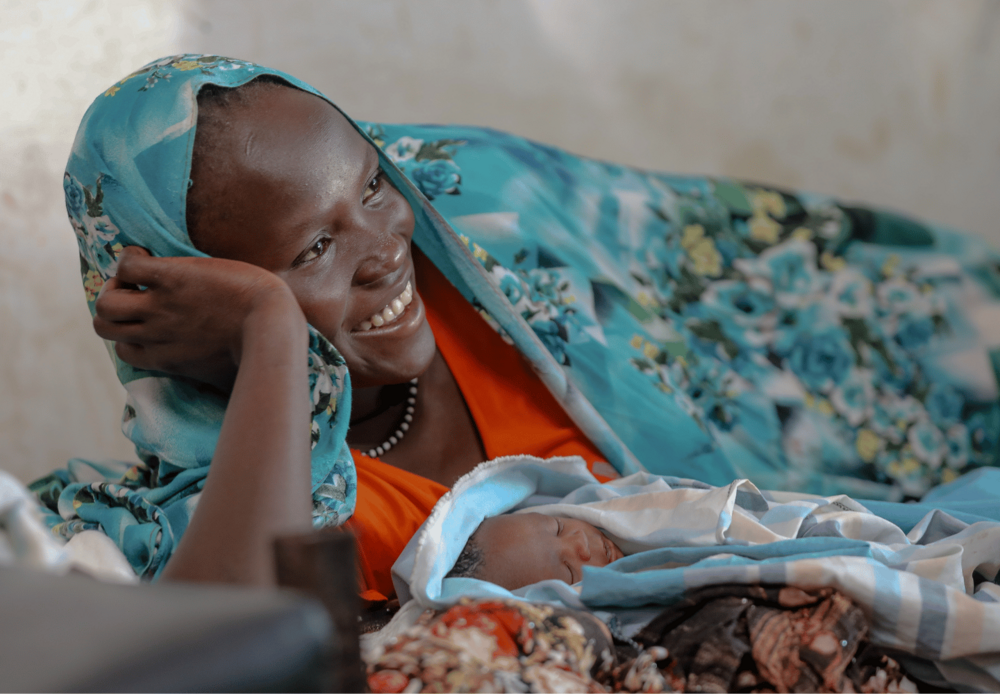
Gizachew also leads capacity-building initiatives, training colleagues on safe referral practices and the management of gender-based violence. These efforts are helping to strengthen the entire health system. But perhaps his greatest impact lies in the trust he has built.
“He treats us with kindness and respect,” says one mother, cradling her newborn. “He truly listens.”
A colleague adds, “Even when he’s exhausted, he never turns a patient away.”
Lighting the Way Forward
As the day winds down, Gizachew checks on mothers in the postnatal ward. One softly whispers, “Thank you.” In that moment, all the challenges and long hours seem worth it.
“We still need more, more midwives, more equipment, more awareness,” he says. “But every safe delivery is a step forward.”
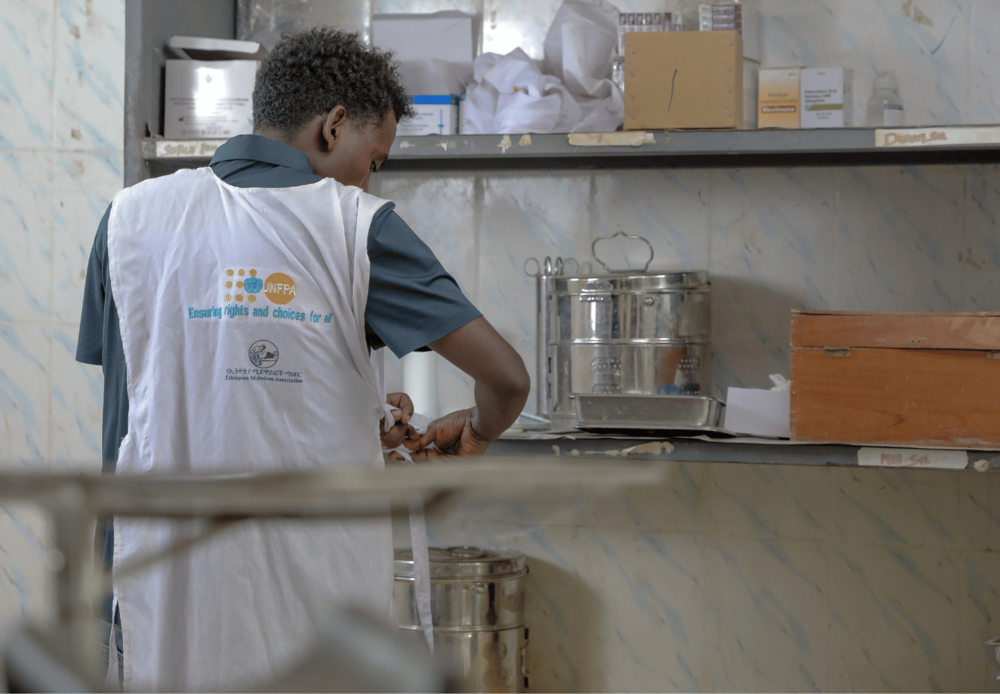
In Sherkole, Midwife Gizachew Eyayu is not just a healthcare provider. He’s a symbol of hope, a reminder that with compassion, commitment, and the right support, lives can be transformed, even in the most remote corners of Ethiopia.

